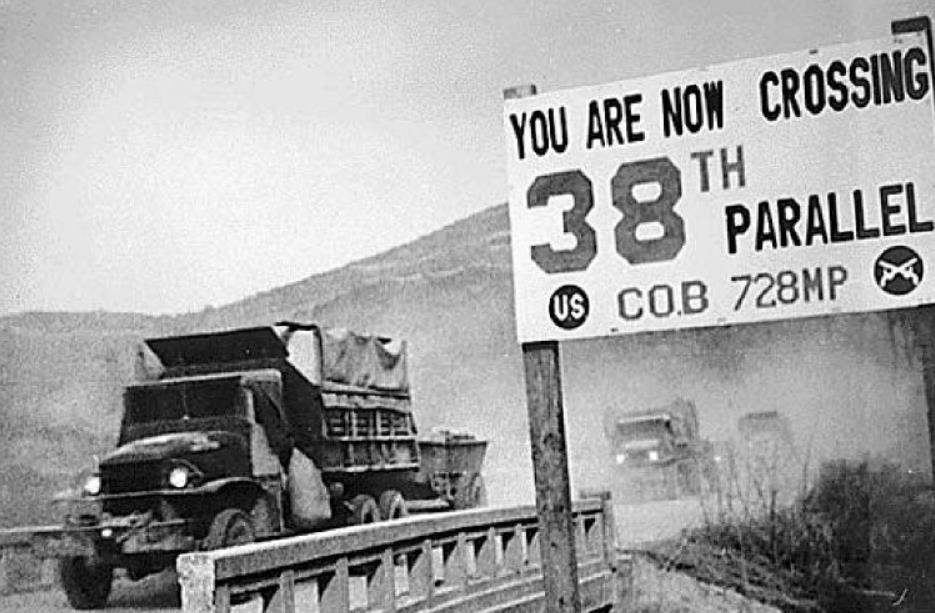
Three weeks before the Battle of Chosin Lake, the Volunteer Army severely damaged the 1st Cavalry Division of the elite U.S. Army at Unsan, North Korea. The book "The Coldest Winter: The Korean War in the Eyes of the Americans" starts from the American perspective and compares the defeat of the Battle of Unsan to the Battle of the Little Bighorn River (The Battle of the Little Bighorn River) in history when the American Army was completely annihilated by the Indians. However, due to their position, the Americans' description of the volunteer army is distorted and distorted, and the reason for their defeat is attributed to the "human sea tactics" of the volunteer army, which needs to be identified by the reader.
Just after midnight, the Chinese army launched a general offensive. In the past four months, no matter which battle he participated in, Davis would always be outnumbered, but this time for his class, the biggest problem was that the machine gun had failed due to overloaded use. Davis had long anticipated the possibility of this. When he first arrived in North Korea, he was responsible for carrying ammunition, then reloading, and finally becoming a machine gunner, during which he had lost three or four machine guns. Because the balance of forces between the enemy and us is too large, the demand for heavy firearms is always endless. In the beginning, they used the most common weapons of infantry - the M-1 rifle, carbine and even machine gun. But no matter what the weapon, it is far from enough for the huge number of enemy troops. At one point, the battalion commander, Lieutenant Colonel Bob Kane, said to him, "The point of this war is that you have to take down a hundred enemy troops and you can go home." When you actually bring down a hundred enemy troops, this war will not be a big deal. However, as to why it took down a hundred enemy troops to be able to go home, Kane did not explain too much. Davis rarely saw such a situation. After the U.S. military fired the flares, when he grew up on a farm in upstate New York State, when he saw the enemy troops in the mountains, he couldn't help but think of the rolling wheat waves in his hometown. Now the sight is chilling, with thousands of enemy soldiers coming at them. Even if you knock down one, there will be the next; even if you knock down a hundred, there will be another hundred predecessors and successors. This scene is undoubtedly a great irony for Kane's joke. Then Davis saw an officer on horseback who seemed to be directing the soldiers. They also held trumpets, and whenever the horn sounded, the enemy soldiers would change the direction of their attack from time to time.
Davis knew that the few soldiers around him had run out of ammunition, and I was afraid that they had little time left; they kept firing, usually at close range. Davis later recalled that after an hour, or at most two hours, the ammunition was gone and the machine gun was too hot to use. At about 2 a.m., the deputy platoon commander found him, davis blew up his machine gun with the only grenade left in his hand, and then the two managed to come together to the mortar and fire empty package shells, which gave them a little cover. The most important thing right now is to get through the night. At the crack of dawn, they tried to regroup and were surprised to find that some were still alive.
They have been completely under siege.
…………
After the battle, more than 800 of the original 2,400 men of the 8th Regiment were killed or wounded. Of the unlucky 3 battalions, only nearly 200 of the original 800 men successfully broke through. So far, this was the worst defeat for U.S. troops on the Korean battlefield. After four months of bitter fighting, the US military saw that victory was about to be won, but the situation on the battlefield was suddenly reversed. This result is particularly distressing for the U.S. military, which has always been invincible. The Chinese army seemed to suddenly fall from the sky, and in an instant, an elite division of the US army was crushed. In the Battle of Unsan, the 8th Regiment suffered heavy casualties and lost many advanced weapons and equipment, including 12 howitzers, 9 tanks, 125 trucks and dozens of recoilless rifles. The day after the Chinese attack, the spokesman of the regiment made a shaky remark to reporters. "We don't know if they can represent the Chinese communist government, but this battle was like custer being attacked by Indians on the Little Bighorn River, it was a complete Indian massacre," he said. ”
Whether or not unincorporated the word "retreat", they also began to rapidly withdraw to the other side of the Cheongcheon River, ready for the next round of attacks by Chinese forces. But at this moment, as if they had appeared unconsciously, the Chinese army had disappeared without a trace in the blink of an eye. No one knows where they went. They quietly left the battlefield, once again hiding themselves. Although the people at the Tokyo headquarters are happy to believe that they have left North Korea, they are still hiding somewhere in the north. They wanted the U.S. military to fall into a trap again and come closer to their base camp. The Battle of Unsan was only the beginning, and the real battle took place three weeks later, in a place farther north and colder than Unsan.
Author: David Huberstam
Translation: Wang Zuning, Liu Yinlong
EDIT: Wei Zhong
*Source:The Coldest Winter: The Korean War through the Eyes of The Americans